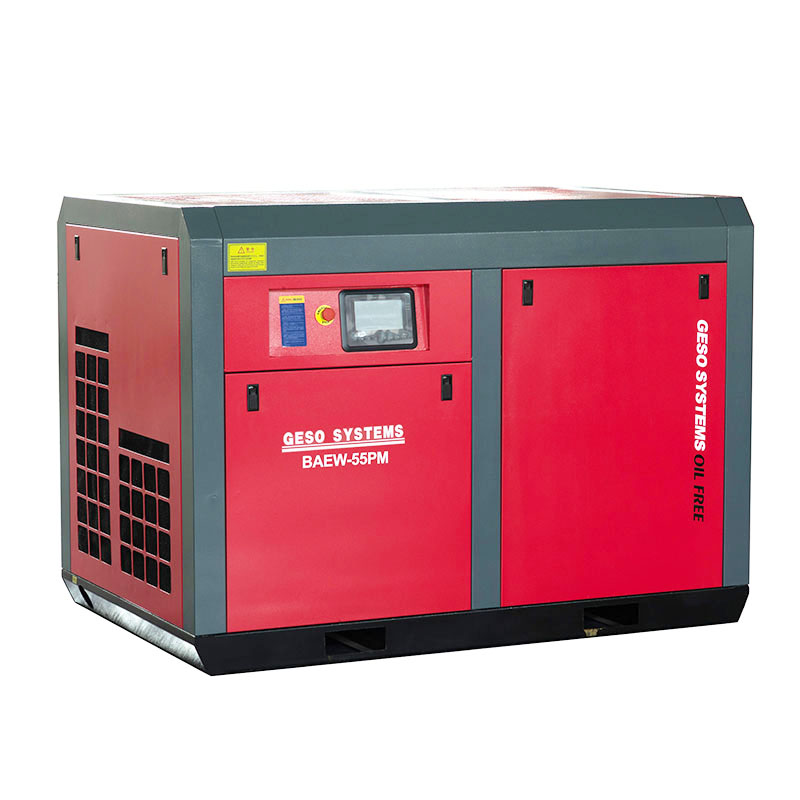Oil-Free Air Compressor: Clean and Efficient Compressed Air Solution
2025-07-17
An oil-free air compressor is a type of compressor that delivers compressed air without using oil in the compression chamber. This design eliminates the risk of oil contamination in the air output, making oil-free compressors ideal for industries that require clean, dry, and contaminant-free air—such as food processing, pharmaceuticals, electronics, and medical equipment.
What Is an Oil-Free Air Compressor?
In traditional air compressors, oil is used to lubricate moving parts and seal the compression chamber. In contrast, oil-free compressors use advanced materials (like Teflon or ceramic coatings) and precision engineering to operate smoothly without the need for lubrication in the compression area. Some models use water-based or dry mechanisms to reduce friction and heat.

Key Features
No Oil in Compression Chamber: Prevents contamination of air with oil particles.
Low Maintenance: No need for oil changes or filtration systems.
Compact & Lightweight: Often smaller and easier to move or install.
Quiet Operation: Especially true for scroll and diaphragm oil-free compressors.
Environmentally Friendly: Reduces disposal of used oil and lowers environmental impact.
Types of Oil-Free Air Compressors
1. Piston (Reciprocating) Type
Ideal for intermittent use. Common in dental clinics, labs, and small workshops.
2. Scroll Compressors
Quiet, efficient, and compact. Suitable for medical and electronics applications.
3. Centrifugal Compressors
Large-capacity systems used in industrial or power generation facilities.
4. Screw Compressors (Dry Type)
Designed for continuous operation with higher airflow demands.
Common Applications
Medical and Dental Clinics
Provides clean air for tools and patient care environments.
Food and Beverage Industry
Ensures hygienic air for packaging, processing, and bottling.
Pharmaceutical Manufacturing
Keeps production areas sterile and contaminant-free.
Electronics and Semiconductor Production
Avoids particle contamination that can damage sensitive components.
Painting and Spraying
Produces clean air that doesn’t interfere with paint finishes.
Pros and Cons
Pros:
Clean air output
Lower maintenance requirements
Safer for sensitive applications
Reduced environmental impact
Cons:
Higher initial cost
May have shorter lifespan than oil-lubricated models in high-demand settings
Limited power in some compact designs
Conclusion
An oil-free air compressor is the perfect choice when air purity is a priority. Though they may come with a higher upfront cost, the benefits—cleaner output, reduced maintenance, and environmental friendliness—make them an excellent investment for industries that demand reliability and hygiene in compressed air systems.


